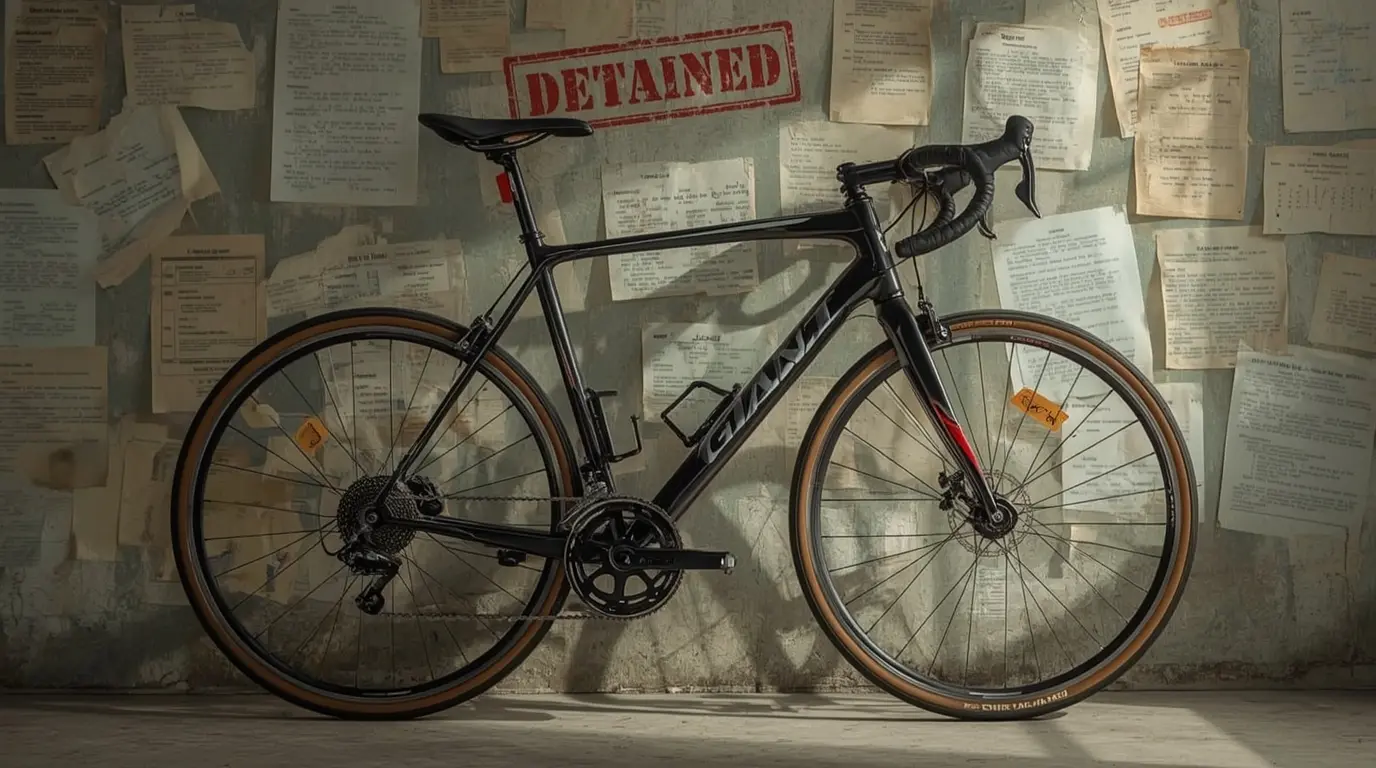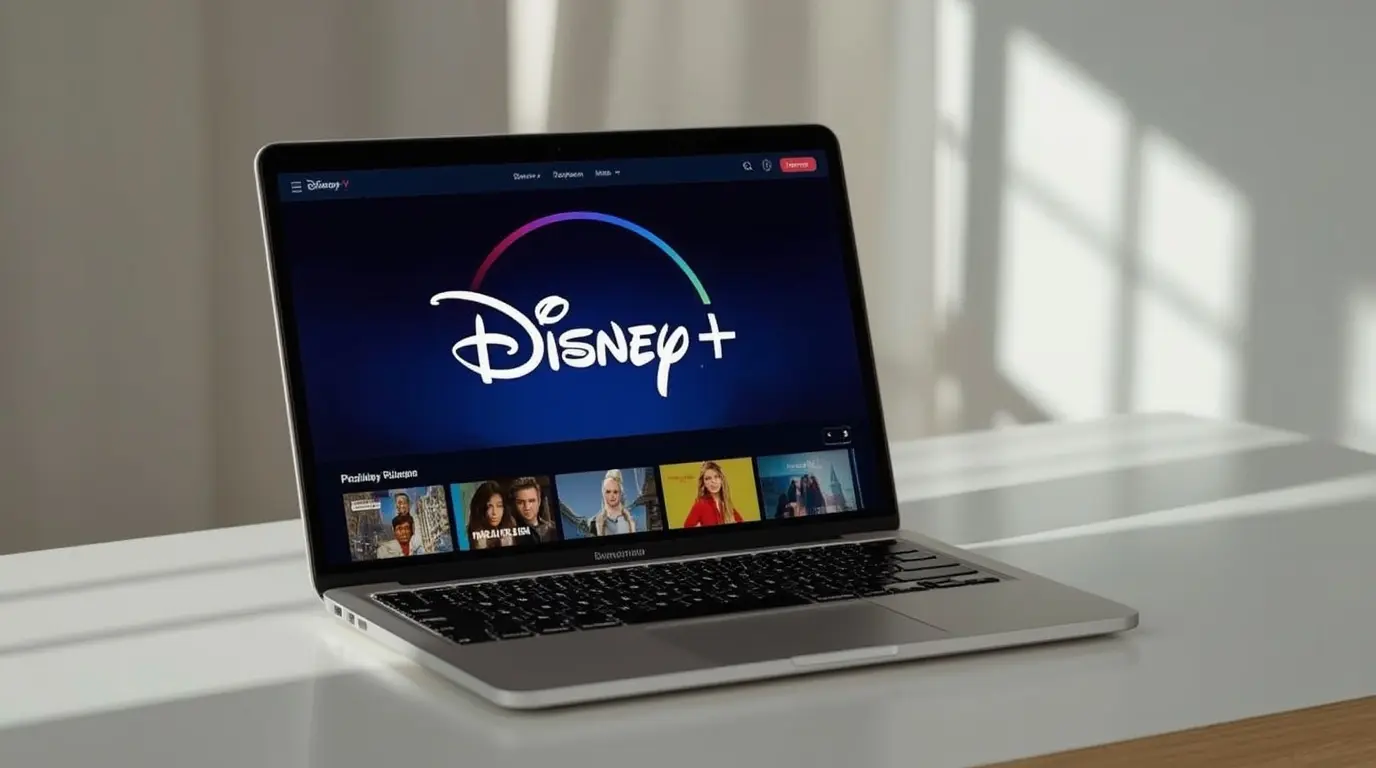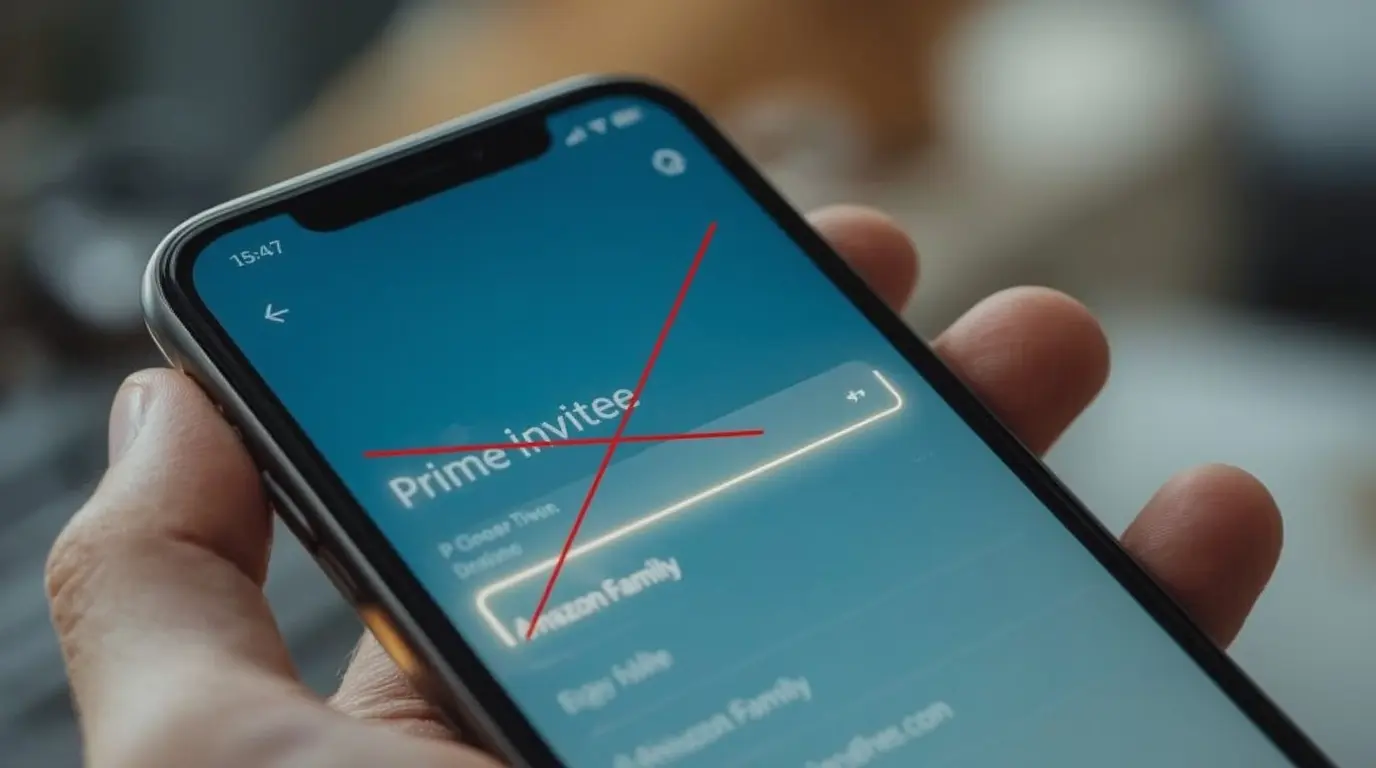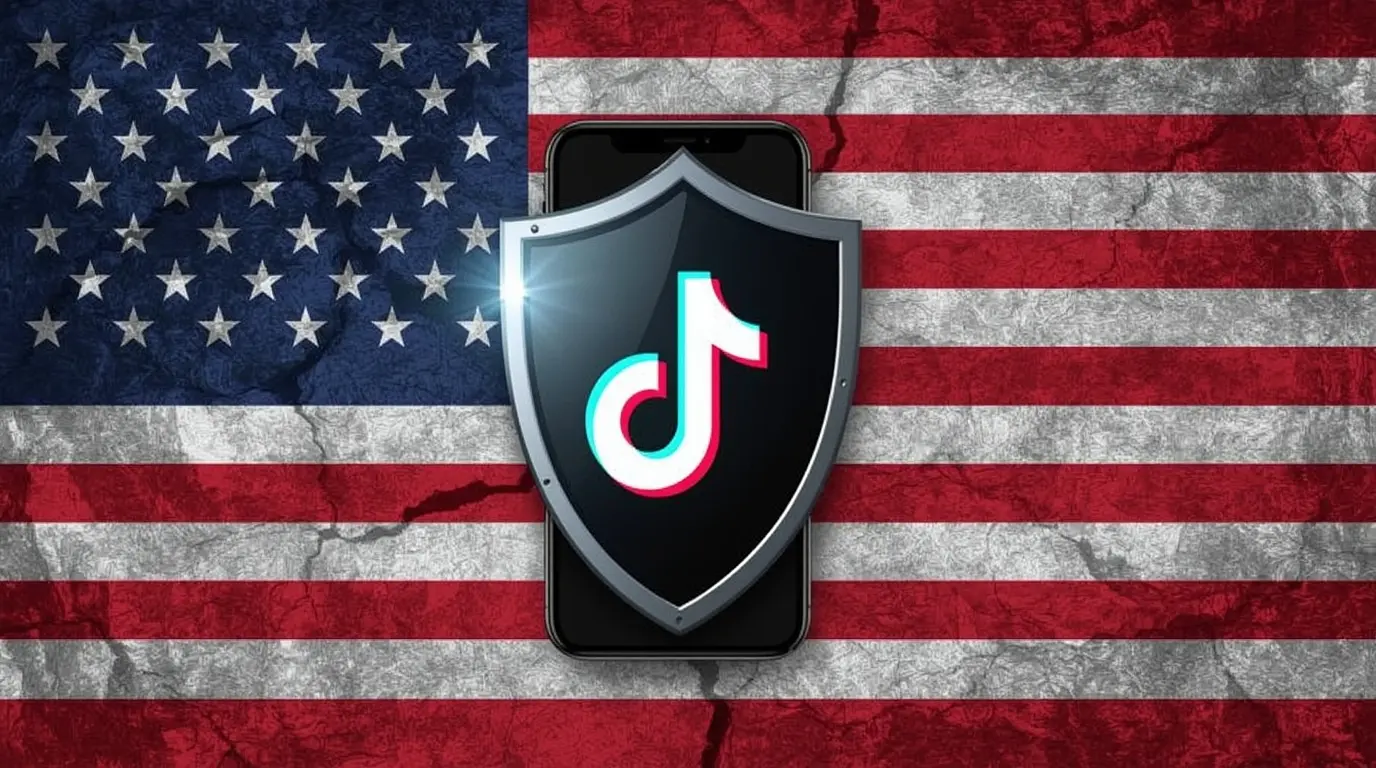A Sudden Halt: Understanding the U.S. Import Block on Giant Bicycles
The Trump administration has issued an immediate ban on Taiwan-made Giant bicycles, a move that is already shaking both the cycling world and the wider trading community. U.S. Customs and Border Protection (CBP) imposed the action after a probe revealed evidence of forced labor at Giant Manufacturing Co. Ltd., the planet’s biggest bike maker.
Under a Withhold Release Order (WRO), all Giant bikes, parts, and accessories coming from Taiwan can now be held at the border. Importers are stuck: they can send the goods back, destroy them, or show that no forced labor was used during production. With Giant supplying huge chains like Wal-Mart, this creates a logistical and reputational nightmare. Data for 2023 show that fully 40% of U.S. bike imports are made in Taiwan, adding more weight to the decision.
This article breaks down the details of the WRO, what investigators discovered, and what the fallout could look like for Giant, bike buyers, and international trade.
The Investigation’s Findings: Why Giant Was Flagged
U.S. Customs and Border Protection says their recent action stems from a probe showing strong signs of forced labor inside Giant’s Taiwan plant. The warning follows a set of guidelines from the International Labour Organization, and CBP is closely watching these markers.
The probe turned up a series of troubling practices. Workers experienced harsh and unsafe conditions, had to live in unsuitable housing, and faced the burden of debt bondage. On top of that, the plant withheld wages, forced runaway overtime, and threatened to charge migrant workers high recruitment fees.
These combined tactics let Giant cut production costs unfairly, the agency argues, which in turn created a pricing edge against American manufacturers and led to “millions of dollars in unjustly earned profits.” Rodney S. Scott, CBP Commissioner, pledged to keep pursuing firms that undercut law-abiding competitors by using forced labor.
In reply, Giant told officials that the company “is committed to upholding human rights and labor protections.” The firm says it is already acting to fix the problems, which include upgrading worker housing and waiving recruitment fees for new migrant hires starting this January. Taiwan’s labor ministry has announced plans to collaborate with Giant to settle the matter, showing a willingness to join the effort.
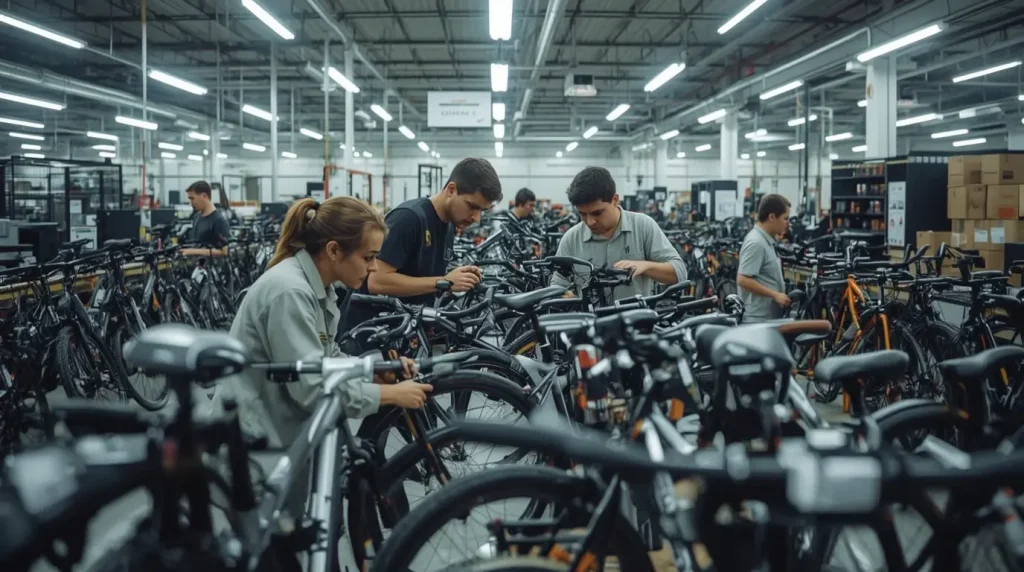
Giant’s Growing Financial and Operational Struggles
Giant’s latest regulatory setback hits when the cycling leader is already in rough waters. Earlier this month, the firm announced its operating profit dropped 60% in 2024, stung by a hefty NT$1.9 billion ($57.6 million) inventory write-down. Discounts designed to clear surpluses formed the write-down, and that surplus appeared when U.S. and European consumers pulled back.
The headwinds persisted into the fourth quarter of last year. Revenue fell 8.5%, and the firm endured an operating loss of NT$1.04 billion, a marked setback. Leadership had aimed for a profit rebound this year, believing that improving inventory numbers and a soft rebound in new-product demand would smooth the path. Still, the unexpected newly proposed warning and restrictions (WRO) now loom over the plan, threatening to pull a critical chunk of anticipated sales. The company has indicated that the warning affects only bicycles made in Taiwan and sent to the U.S. All production in mainland China, Europe, Vietnam, and sales to markets beyond the U.S. remain untouched, offering a partial cushion.
A Broader Pattern: Customs Enforcement in 2025
What just happened to Giant wasn’t a once-in-a-lifetime raid; it fits into a pattern the Customs and Border Protection (CBP) keeps tightening. If you import stuff, landing in 2025 means higher tariffs and rules that seem to multiply overnight. CBP has upped its tech game. They use advanced, risk-scoring software to check documents before the ship even docks. One small typo, the wrong port of origin, or a box unchecked, and your container gets singed, causing inspections that can stretch your delivery to a crawl.
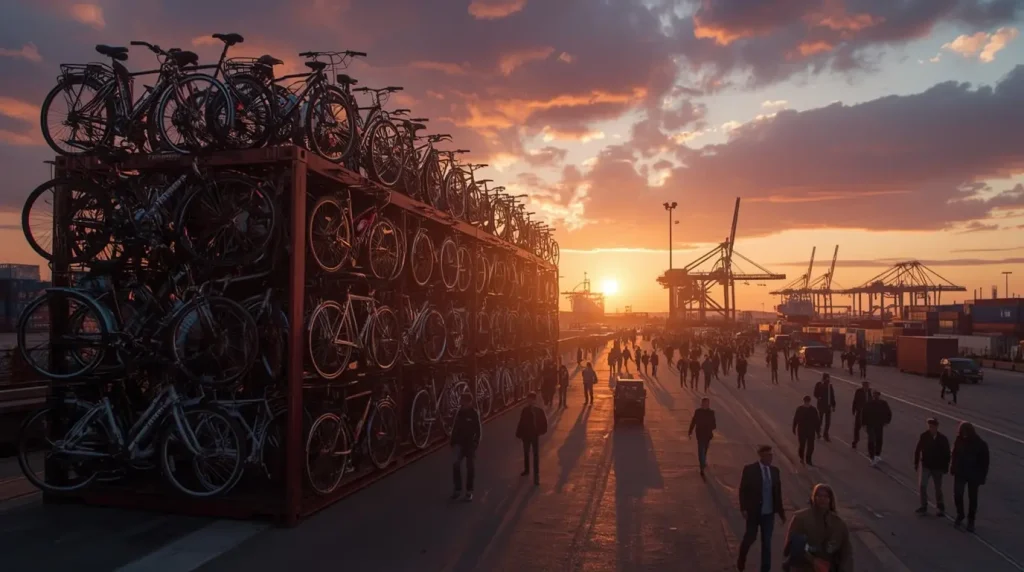
Here’s a quick look at what gets your cargo held and what lands you in the seizure zone. Giant’s scenario hit the latter.
| Customs Action | Common Causes | Nature & Outcome |
|---|---|---|
| Hold for Inspection | Incomplete paperwork, vague product descriptions, valuation discrepancies, random checks. | Temporary delay. Goods are released if compliance is verified. Can take from a few days to several weeks. |
| Seizure/Forfeiture | Forced labor (WRO), counterfeit goods, falsified country of origin, missing required certifications, prohibited items. | Permanent confiscation. Requires a legal response from the importer to potentially recover the goods. Results in cargo loss and potential fines. |
What This Means for the Market and You
As the WRO takes effect, Giant is staring down delayed shipments and the real chance that some of its popular bike models could run dry on U.S. store shelves. If you’re planning to buy a new Giant, you might want to start looking for other brands in the same Category—an unexpected red flag for the whole bike market and its supply chain. Retailers who’ve built their business on Giant could have a hard time restocking.
For every other importer, this episode is a loud wake-up call: your supply chain must be clean, or you’ll face the music. CBP isn’t satisfied with documents; they dig through a supplier’s entire track record. The moment a supplier gets a black mark, shipments tied to them get special attention, even if a new importer takes them on. So, when Giant’s partners start getting extra inspection, they could face their own delays and headaches. The ripples from the WRO could keep spreading long past the headline.
Navigating the New Trade Reality
The recent action against Giant Customs sends one strong message: following trade and worker-rights rules is absolutely essential. Firms that handle international shipments must act now to avoid similar penalties.
Here’s how to protect your supply chain:
- Work with a Licensed Customs Broker: Customs rules can be complicated. A licensed broker knows how to file the right papers and can classify products correctly to avoid delays.
- Keep Crystal-Clear Documentation: Every paper must match. Use clear terms like “steel widgets” rather than vague phrases like “goods” or “merchandise.” Big info gaps trip shipments.
- Inspect Suppliers Carefully: Price and quality matter, but a supplier’s worker practices and compliance history matter more. Dig deeper before signing a contract.
- Build a Strong Compliance Track Record: Past shipments shape future risk. Submit clear, consistent customs documents to develop a “low-risk” importer status. That can speed releases and inspections later.
Conclusion: A Precedent-Setting Move
The ban on Taiwanese Giant imports is not an isolated case. It’s a loud warning that U.S. trade rules now consider human rights on the same level as tariffs or quotas. The message is clear: even the biggest brands must answer for forced-labor violations. Firms must prepare or face blocked cargo and damaged reputations.
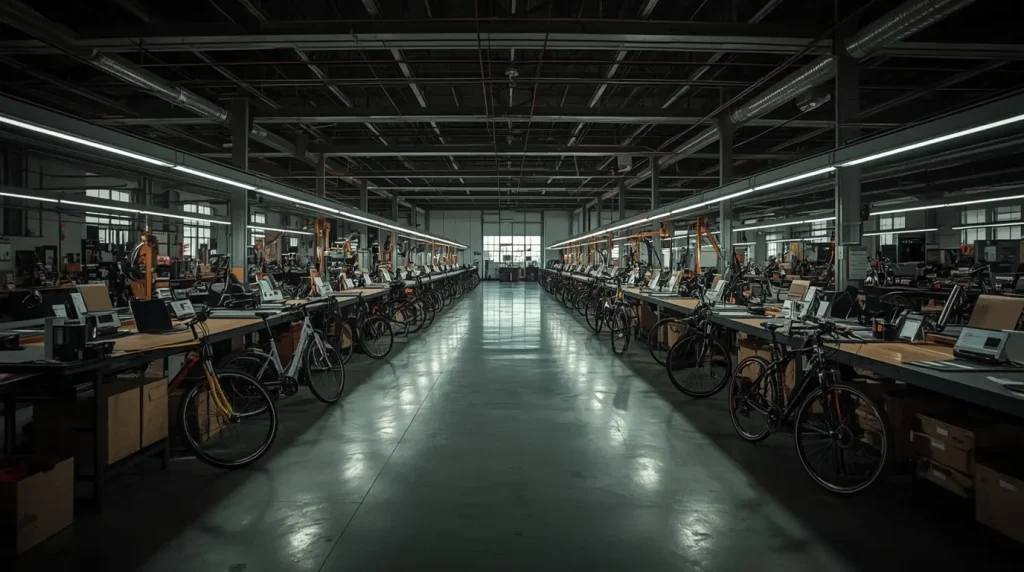
The next few weeks will be really important for Giant. How it works with CBP to fix problems will shape its future. Companies, watchdogs, and policy-makers everywhere will watch close, learning from Giant to see what to do next. Their story will shape the future of checking supply chains for fairness and bond with their customers. Every brand, not just Giant, must aim for the same finish line: products that not only stand for quality but also stand for what is right.
Source: https://edition.cnn.com/2025/09/25/business/giant-import-delays-us-customs-ban-intl-hnk
For more news updates, visit our home page.

